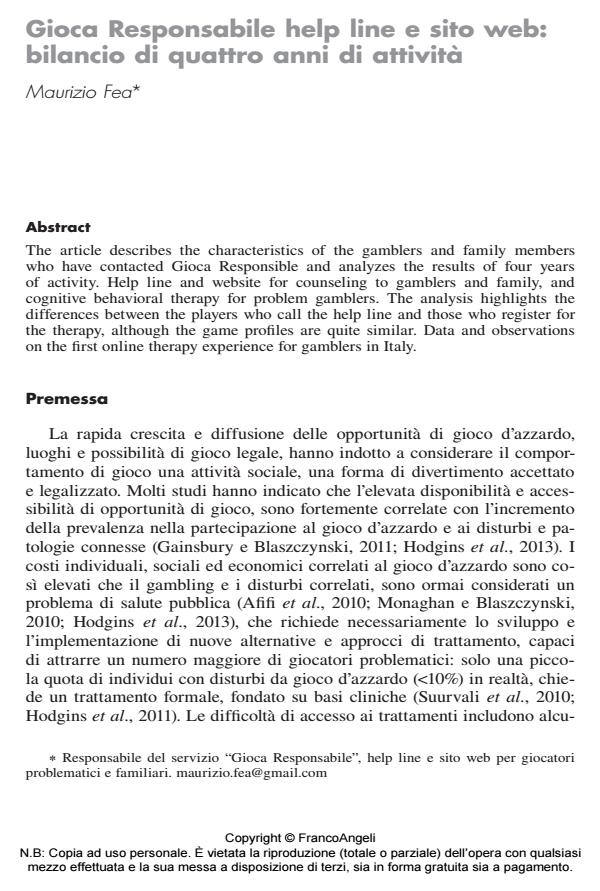Gioca Responsabile help line e sito web: bilancio di quattro anni di attività
Titolo Rivista SICUREZZA E SCIENZE SOCIALI
Autori/Curatori Maurizio Fea
Anno di pubblicazione 2014 Fascicolo 2014/3
Lingua Italiano Numero pagine 10 P. 146-155 Dimensione file 105 KB
DOI 10.3280/SISS2014-003011
Il DOI è il codice a barre della proprietà intellettuale: per saperne di più
clicca qui
Qui sotto puoi vedere in anteprima la prima pagina di questo articolo.
Se questo articolo ti interessa, lo puoi acquistare (e scaricare in formato pdf) seguendo le facili indicazioni per acquistare il download credit. Acquista Download Credits per scaricare questo Articolo in formato PDF

FrancoAngeli è membro della Publishers International Linking Association, Inc (PILA), associazione indipendente e non profit per facilitare (attraverso i servizi tecnologici implementati da CrossRef.org) l’accesso degli studiosi ai contenuti digitali nelle pubblicazioni professionali e scientifiche.
The article describes the characteristics of the gamblers and family members who have contacted Gioca Responsible and analyzes the results of four years of activity. Help line and website for counseling to gamblers and family, and cognitive behavioral therapy for problem gamblers. The analysis highlights the differences between the players who call the help line and those who register for the therapy, although the game profiles are quite similar. Data and observations on the first online therapy experience for gamblers in Italy.
Maurizio Fea, Gioca Responsabile help line e sito web: bilancio di quattro anni di attività in "SICUREZZA E SCIENZE SOCIALI" 3/2014, pp 146-155, DOI: 10.3280/SISS2014-003011